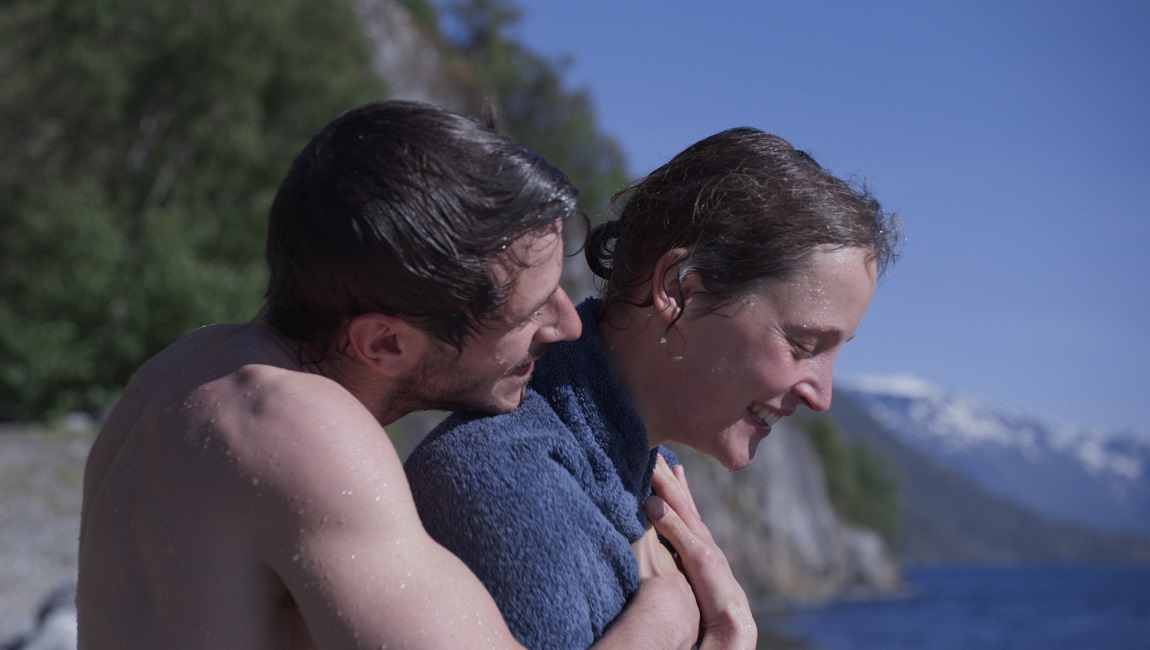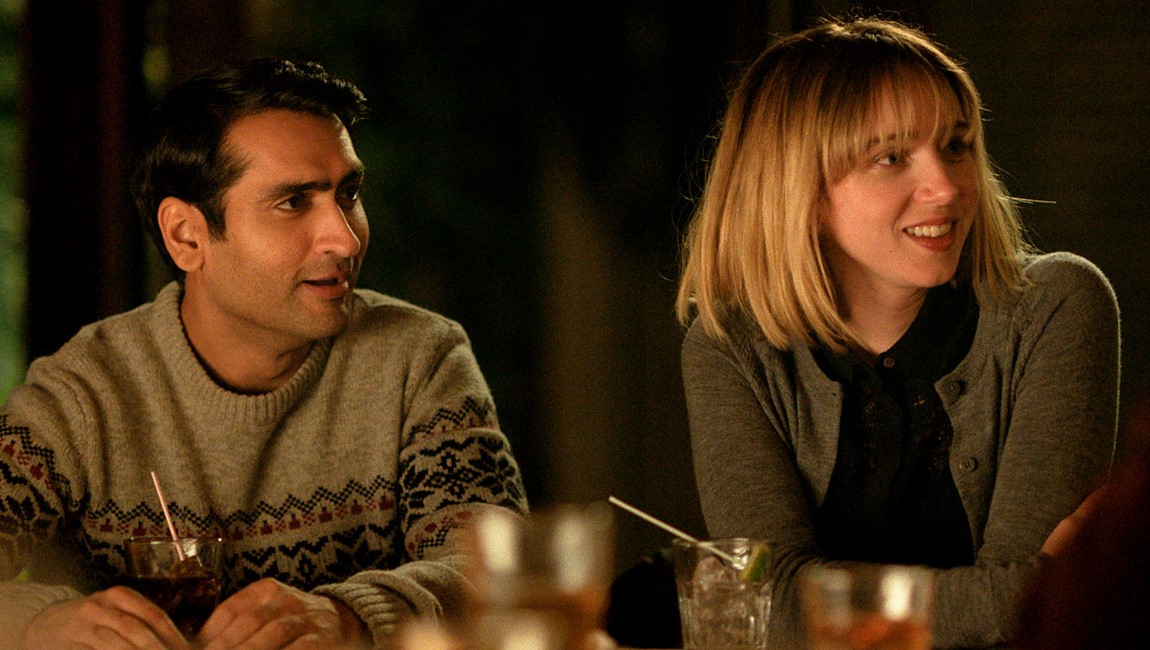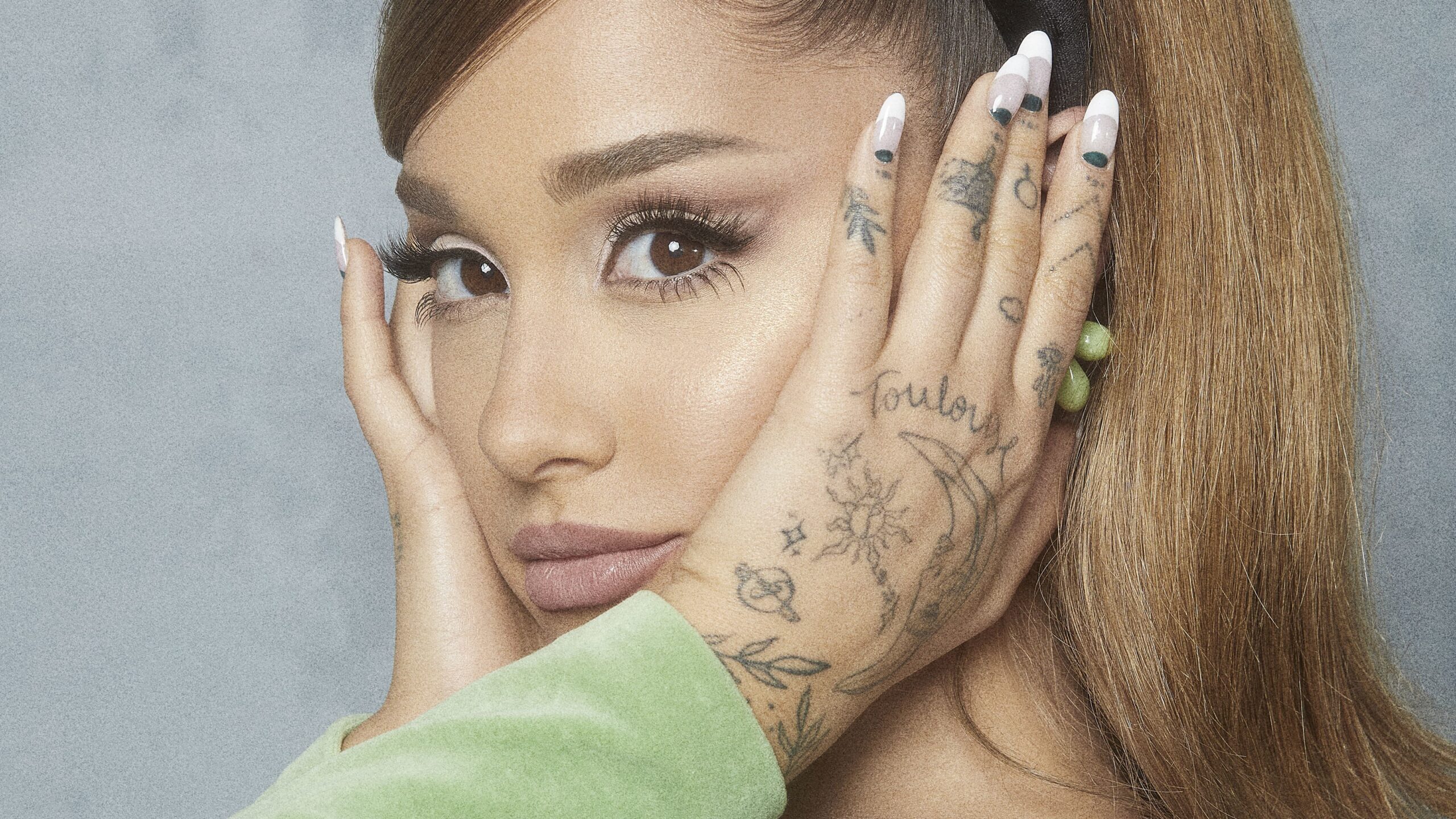Implicit to the challenge “how do you want to live?” is the corollary: “how do you want to die?” This is the question at the crux of Emily Atef’s most recent feature, More Than Ever, which first premiered as part of the Cannes Film Festival’s Un Certain Regard programming in 2022. More Than Ever follows 30-something Hélène (Vicky Krieps) and her husband Mathieu (Gaspard Ulliel, in his final live-action role before his untimely passing) as they navigate the unexplained onset of her idiopathic pulmonary fibrosis. Hélène suffers feelings of drowning — manifesting both as her struggles to breathe and via Atef’s sonorous use of interspersed POV shots of someone struggling to stay above water — as she navigates a sea of friends who no longer understand her.
Least understanding of all is her husband, though he tries to do so more than anyone. In the friction caused by their polar perspectives, Mathieu winds up remarking to a friend that “he’s never spent so much time with her and missed her so much.” The task, then, for Mathieu and his friends, is to understand dying from the vantage of the living, despite any actual conception of death being an imaginative impossibility to the mind.
Hélène and Mathieu are given the opportunity to sublet some solace when they’re told that Hélène is eligible for a lung transplant, but they’re cautioned that finding a perfect match is subject to chance, that same fickle malcontent that has rendered her with an unexplained, incurable condition in the first place. Hélène turns to Google to learn how to die and subsequently comes across the blog of Mister, a dying Norwegian man resigned to avoiding all end-of-life clichés. She knows she needs to go with him, to be with someone who can understand her; or, perhaps, to be with nobody at all. Mathieu, her friends: they’re reminders of a past that bears the promise of a future that no longer exists. The failure by the people in her life to acknowledgement this fact forces her to relive this loss over and over again.
In many ways, More Than Ever is as much a film about life and death as it is about nature and civilization. Despite the neurotic fixation of modern society to optimize the self — to prolong life, to move through certain rites and markers of success, to get better and “go back to work” — it’s an instinct that occurs without consideration for the nuance of life’s lack of control, its basic chaos, the reality of chance. At one of the most completely human moments of her life, one that ultimately we will all experience in varying ways, Hélène recognizes that there is nothing left for her in her comfortable, bourgeois life in Bordeaux, and so she leaves to go live and die in a Fjord with a stranger she met online. There, the opinions of her peers evaporate, and their static weight no longer bears friction on the accelerating degradation of her body. In that absence, she can come to a point of acceptance. She can “live within her body” and go on a hike and nearly die. Afterward, speaking with Mister, she remarks, “I was ready to leave. It was nice.”
Eventually, Mathieu comes to retrieve his wife, concerned about her degrading health and in an effort to have a direct conversation about treatment methods. He arrives and finds that Mister and Hélène have a certain spiritual connection, an understanding in their mutual dying that he does not. An act of violence sends the last quarter of the film into full flight, and in a confrontation with Hélène, Mathieu commands: “This is not how people do things, you’re supposed to be surrounded by people you love.” Earlier, Mister had assured Hélène, “You’re dying. You have to be selfish.” And so, at Mathieu’s confrontation, she runs away, back up that hill, where once again she nearly dies, this time in Mathieu’s arms.
The two are thereafter able to make love, after many failed attempts throughout the film, and after this act of summative consummation, Mathieu departs. Maybe they will never see one another again. Maybe “death shall be no more; Death, thou shalt die.” This is the tricky irony at the heart of More Than Ever, which cuts like white-hot steel at the mechanics of our constrained lives. For Mathieu to accept Hélène wholly into his life at the end of hers, he must accept her departure from it. For her to capture the little control afforded to her in what remains of her life, to finally become “the master of her fate, the captain of her soul,” she must accept her lack of control to combat the power that is taking her life away.
DIRECTOR: Emily Atef; CAST: Vicky Krieps, Gaspard Ulliel, Bjørn Floberg; DISTRIBUTOR: Strand Releasing; IN THEATERS: October 6; RUNTIME: 2 hr. 2 min.







